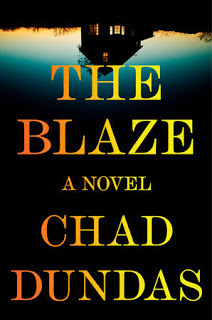 The author, on how she and Mo were united:
The author, on how she and Mo were united:We first spotted Mo’s profile on the website of a local rescue, and were immediately taken by her incredible smile. When we reached out to see if we could meet her, we were told that she was actually a part of their international program—and was located in Taiwan! At first we didn’t feel comfortable adopting a dog without meeting them first, but the rescue continued to send us videos of Mo and we fell increasingly in love with her. Finally, we decided to go for it—and picked her up at the San Francisco airport! It was a rough adjustment—she had a ton of trauma in her past, including abuse, abandonment, and the loss of her puppies—but with a lot of love and patience she’s completely bloomed...[read on]About O’Shaughnessy's new novel The Lonely Heart of Maybelle Lane, from the publisher:
Maybelle Lane is looking for her father, but on the road to Nashville she finds so much more: courage, brains, heart–and true friends.Visit Kate O’Shaughnessy's website.
Eleven-year-old Maybelle Lane collects sounds. She records the Louisiana crickets chirping, Momma strumming her guitar, their broken trailer door squeaking. But the crown jewel of her collection is a sound she didn’t collect herself: an old recording of her daddy’s warm-sunshine laugh, saved on an old phone’s voicemail. It’s the only thing she has of his, and the only thing she knows about him.
Until the day she hears that laugh–his laugh–pouring out of the car radio. Going against Momma’s wishes, Maybelle starts listening to her radio DJ daddy’s new show, drinkingin every word like a plant leaning toward the sun. When he announces he’ll be the judge of a singing contest in Nashville, she signs up. What better way to meet than to stand before him and sing with all her heart?
But the road to Nashville is bumpy. Her starch-stiff neighbor Mrs. Boggs offers to drive her in her RV. And a bully of a boy from the trailer park hitches a ride, too. These are not the people May would have chosen to help her, but it turns out they’re searching for things as well. And the journey will mold them into the best kind of family–the kind you choose for yourself.
Coffee with a Canine: Kate O’Shaughnessy & Mo.
--Marshal Zeringue












































